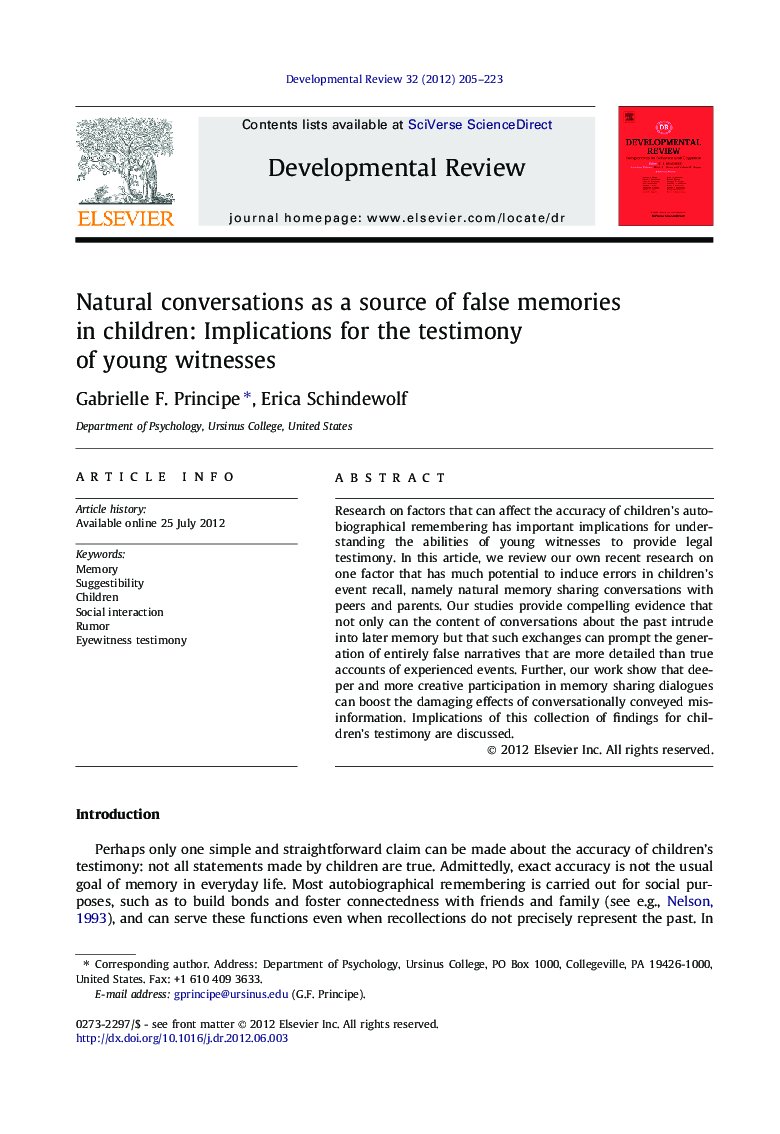| Article ID | Journal | Published Year | Pages | File Type |
|---|---|---|---|---|
| 353486 | Developmental Review | 2012 | 19 Pages |
Research on factors that can affect the accuracy of children’s autobiographical remembering has important implications for understanding the abilities of young witnesses to provide legal testimony. In this article, we review our own recent research on one factor that has much potential to induce errors in children’s event recall, namely natural memory sharing conversations with peers and parents. Our studies provide compelling evidence that not only can the content of conversations about the past intrude into later memory but that such exchanges can prompt the generation of entirely false narratives that are more detailed than true accounts of experienced events. Further, our work show that deeper and more creative participation in memory sharing dialogues can boost the damaging effects of conversationally conveyed misinformation. Implications of this collection of findings for children’s testimony are discussed.
► We review the mnemonic consequences of children’s natural memory sharing conversations. ► The content of conversations about the past can intrude into children’s later memory. ► Such exchanges can lead to false narratives that are more detailed than true accounts. ► Deeper and more creative participation in such dialogues boosts the effects of misinformation. ► Implications of this collection of findings for children’s testimony are discussed.
